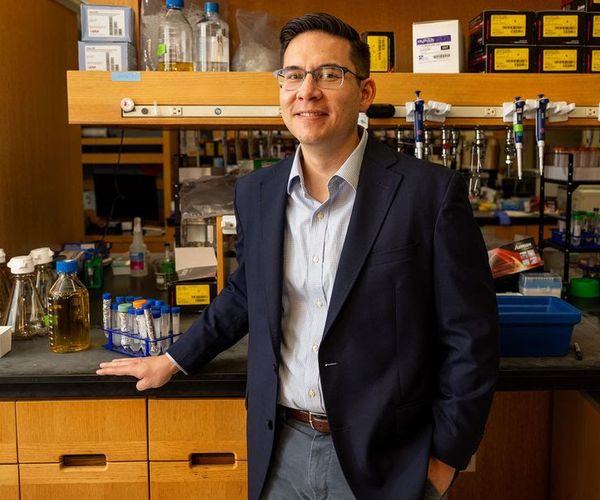Biomedical engineer’s high-risk project could lead to improved cancer treatments and other therapies
Before a new car rolls onto the road, engineers measure how it reacts to different forces, from passengers plonking into the seats to jarring collisions. Understanding the impact of these forces provides essential insights into the durability and effectiveness of the vehicle and its components—an approach taken for just about every new product, from cell phones to simple bottle flip tops.
Now, Boston University engineer Alexander A. Green wants to do the same kind of force measurement for biological cells, with the goal of one day improving cancer therapies. He hopes that by tracking the forces involved when cells interact with one another, like in cell-based cancer therapies, he can better control their behavior and pave the way for more potent disease treatments. It’s an out-there, novel idea—and it could fizzle or it could change lives. But Green’s chances of success have just been given a major boost.
A BU College of Engineering associate professor of biomedical engineering, Green has been named a winner of the 2024 National Institutes of Health Director’s Transformative Research Award, given to researchers “proposing transformative projects that are inherently risky and untested but have the potential to create or overturn fundamental paradigms and may require very large budgets.”
Green is sharing the award’s $7.2 million funding with two researchers from Yale University, Julien Berro and Xiaolei Su, and he says their proposed cell forces project would typically be a tough one to win backing for—all promise with, so far, little proof that it’ll work.
“It’s a really important funding mechanism,” Green says of the award. “This kind of blue-sky research is super important—we’re pushing the frontiers.”
Read the full story at BU’s The Brink.
Photo by Cydney Scott
